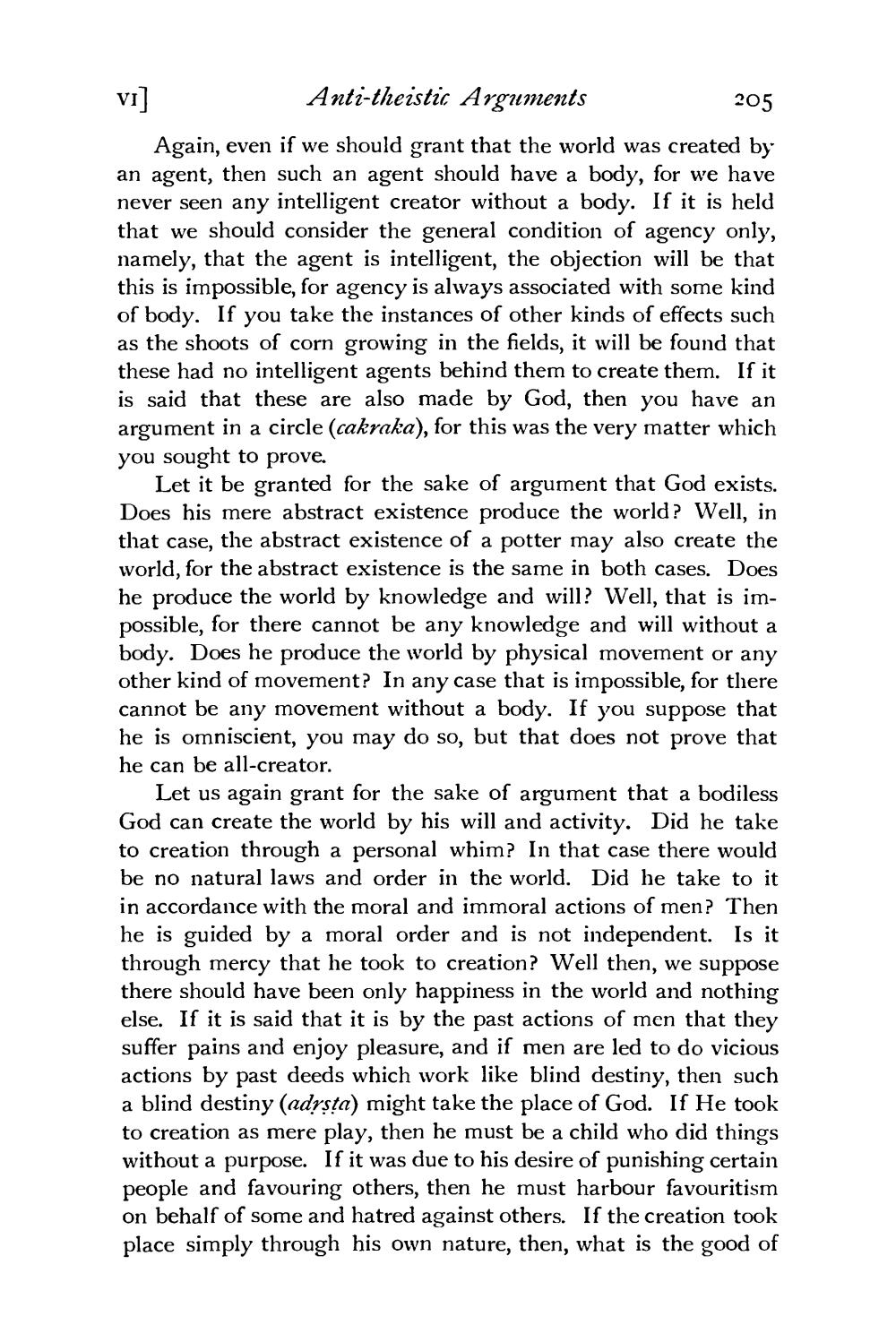________________
Anti-theistic Arguments
205 Again, even if we should grant that the world was created by an agent, then such an agent should have a body, for we have never seen any intelligent creator without a body. If it is held that we should consider the general condition of agency only, namely, that the agent is intelligent, the objection will be that this is impossible, for agency is always associated with some kind of body. If you take the instances of other kinds of effects such as the shoots of corn growing in the fields, it will be found that these had no intelligent agents behind them to create them. If it is said that these are also made by God, then you have an argument in a circle (cakraka), for this was the very matter which you sought to prove.
Let it be granted for the sake of argument that God exists. Does his mere abstract existence produce the world? Well, in that case, the abstract existence of a potter may also create the world, for the abstract existence is the same in both cases. Does he produce the world by knowledge and will? Well, that is impossible, for there cannot be any knowledge and will without a body. Does he produce the world by physical movement or any other kind of movement? In any case that is impossible, for there cannot be any movement without a body. If you suppose that he is omniscient, you may do so, but that does not prove that he can be all-creator.
Let us again grant for the sake of argument that a bodiless God can create the world by his will and activity. Did he take to creation through a personal whim? In that case there would be no natural laws and order in the world. Did he take to it in accordance with the moral and immoral actions of men? Then he is guided by a moral order and is not independent. Is it through mercy that he took to creation? Well then, we suppose there should have been only happiness in the world and nothing else. If it is said that it is by the past actions of men that they suffer pains and enjoy pleasure, and if men are led to do vicious actions by past deeds which work like blind destiny, then such a blind destiny (adrsta) might take the place of God. If He took to creation as mere play, then he must be a child who did things without a purpose. If it was due to his desire of punishing certain people and favouring others, then he must harbour favouritism on behalf of some and hatred against others. If the creation took place simply through his own nature, then, what is the good of




